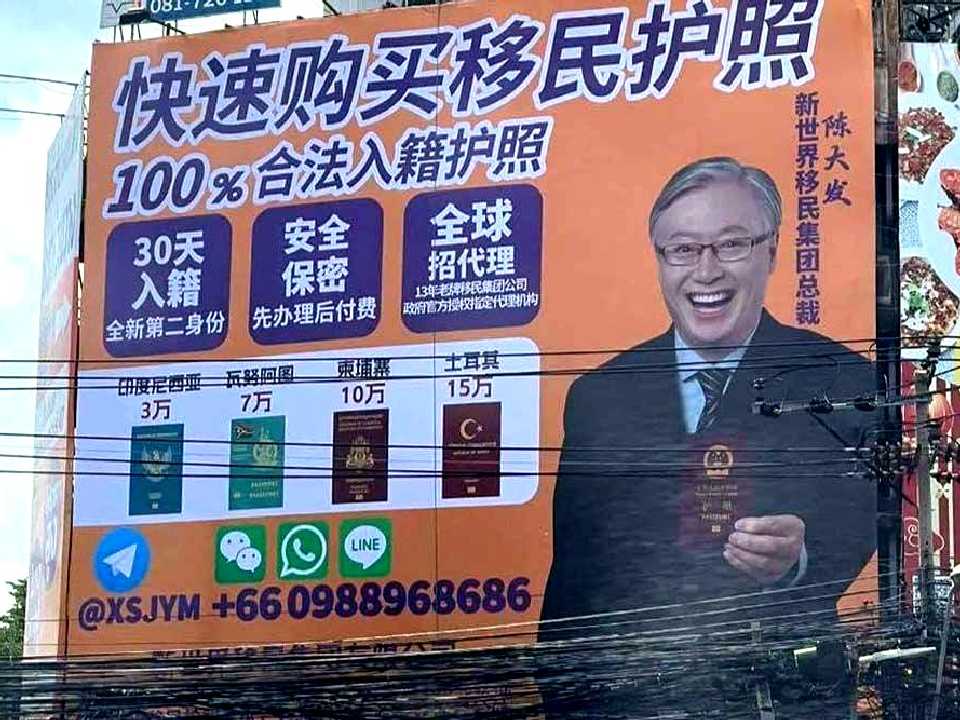
The deputy commissioner of the immigration bureau, Police Major General Panthana Nutchanart, is absolutely right that buying a second passport here is not illegal, provided that the passport for sale is not Thai. In fact, there is a thriving, semi-hidden world of what is politely called “investment residence”. The Bangkok billboard in question, at Din Daeng intersection, has now been taken down for a variety of reasons including no permission to erect the advertisement, failure to inform the Bangkok authorities and illegal use of the Chinese language (no Thai whatsoever).
The offending Bangkok billboard was clearly aimed at Chinese business people and tourists in the metropolis interested in a second passport to conceal their real identity and/or to avoid taxation in their first country. They were offered second passports for Cambodia, Indonesia, Turkey and Vanuata at ridiculously low prices between US$1,000 and US$4,500. A Chinese national who managed to make contact, was told to send no money now but warned that there would be separate administrative costs and additional charges for wife and children.
A quick check on investment visas on the internet shows international law companies (often with prestigious sounding names) happy to oblige. The most popular second passports are in Caribbean countries which often have huge tax advantages. Several companies on their websites offer second passports to the countries also listed on the Bangkok billboard, with prices starting at US$100,000. Most participating countries do not require the applicant to reside in the country, though some require an investment bond as well as a cash donation. It should be noted that Thai passports are strictly not available for cash or investment.
The Bangkok billboard promised a Cambodian passport for only US$4,500. But the Cambodian government has been promoting its own scheme through its second-home scheme which promises permanent residence and the chance of a Cambodian passport later to those investing at least US$100,000 in a specific property company: significantly, its base appears to be in Hong Kong. Alternatively, a passport can be obtained more quickly by a donation or investment of US$305,000.
The key question thus arises why the Bangkok billboard promotion can offer second passports so much more cheaply. Or can it? The Thai government has sensibly banned any more adverts promoting the purchase of second passports even though the publicized scam does not involve Thai passports. However, the scandal does show that transnational “grey” businesses have now got a foothold in Thailand. The prime minister, Srettha Thavisin, has now ordered civic authorities and the immigration police to check for shady Chinese businesses in the Huai Khwang area of Bangkok. The investigation will need to be permanent.








